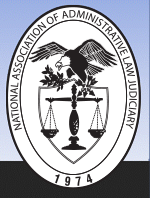Abstract
In the United States administrative law realm, there purportedly exist more than 19 thousand municipal governments, 16 thousand town or township governments; three thousand county governments, 13 thousand school districts and 35 thousand special district governments. This essay argues that these local adjudicative loci largely neglect the ethical guidance or direction of lawyers serving in government-official capacities without holding elected nor judicial positions. I dub these decision-makers “Atticus.” Citizens support the notion of external codes of professional responsibility for such persons not necessarily because they believe that “lawyering rules” are well constructed or property enforced, but because they doubt lawyers truly are self – governing in ways promoting fairness or basic cultural values. The failure of the attorney regulatory process is especially acutely felt in the local government realm. There, attorneys adjudicate through administrative hearing processes while serving as unelected and temporary. The public is intimately acquainted with those processes as direct participants. There are thousands of local governments in America, with estimates ranging to upwards of 90,000 such jurisdictions. Substantial numbers of attorneys act as hearing officers in those communities in a variety of roles. Some are independent contractors; others volunteer their services. Irrespective of compensation, I argue in this essay that, in a “non-counselor” role, Atticus is essentially ungoverned by codes of attorney professional conduct. Thus, potential for mischief abides, a circumstance worsened by the failure of many communities to impose standards of ethical behavior on these contractors or volunteers. I argue that in many instances the lone governing ethic affecting such lawyers’ behavior as they fulfill their hearing officers’ roles is their oaths of admission to practice before the bar. These oaths, sworn at the commencement of bar admission, are marginalized if not ignored altogether in discussions of appropriate lawyer professional conduct where the representation of clients is not implicated. Ultimately I recommend ways for communities and state supreme courts to implement standards appropriate for Atticus’s role and concurrently satisfy public expectations for the local adjudicative process.
Recommended Citation
Michael N. Widener,
Chasing the Atticus Code - Preserving Adjudication Integrity in Local Administrative Hearings ,
31 J. Nat’l Ass’n Admin. L. Judiciary
Iss. 2
(2011)
Available at:
https://digitalcommons.pepperdine.edu/naalj/vol31/iss2/1
Included in
Administrative Law Commons, Land Use Law Commons, Legal Ethics and Professional Responsibility Commons

